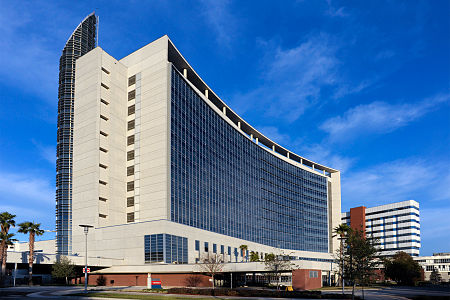Florida Hospital, Altamonte Springs, Fla., the main facility of Adventist Health System.
Retired Army Lt. Gen. Mark Hertling was former commanding general of the U.S. Army in Europe.
General Hertling’s military experience has helped him in his second career, at Florida Hospital Adventist Health System, where he is senior vice president of global partnering, leadership development and health performance strategies. He uses the values he learned in the military to train physicians, nurses, and administrators in eight different courses.
He recently spoke with Physicians Practice on his transition from military general to physician mentor. Among his remarks:
“The number one issue {for physicians} is a lack of trust and it flows both ways. That’s a critical element of leadership; generating trust in an organization. ”
“Doctors distrust the administrators and the administrators distrust the doctors. Both think the other side is only after money and there is that disconnect….{T}hese are really smart people, but they’ve never had an ounce of the kind of training that makes them look at themselves. They are so focused on others. They are overworked. Part of the reason they are overworked is they use some of the wrong techniques. For the most part, physicians don’t communicate well. That’s causing problems…from a patient experience standpoint and from how you generate answers to tough problems.”
“It took me several years [as a] general officer to realize that you have adjust your communication techniques to who you are talking to. This seems simple, but unfortunately most people get stuck in their own profession. I see doctors who don’t talk to well to administrators and because of that communication gap…not just with administrators but with patients…things don’t get done and there is a constant disconnect and constant contribution to burnout.”
On the results of his program at Florida Hospital:
“We’re seeing two major changes as a result of his communication course: Those who have gone through the course are starting to contribute more and [are] trusting the administration because they’ve got a look under the tent flap. The other change is that our administration…is saying [they] want physicians involved in the decision making and the task force, as opposed to people who don’t understand the connection to the patients.”
On how physicians in smaller practices get more involved in a leadership role:
“For part of our second [year doing the program], we took a gamble and took in some physicians from private practices who had no association with the hospital. We took one hand surgeon who is part of a two-doc practice in the area. People wondered why we accepted [him] into the course. I said, ‘He is part of the community. Let’s get the word out.’ Coincidentally he became a physician liaison to the Florida Senate…so while he isn’t connected to Florida Hospital, he is now connected to a bunch of legislators that are doing healthcare reform. He is involved, not employed by Florida Hospital but contributing to healthcare at large.”
Advice to physicians frustrated with today’s healthcare system:
“In order to make change, you can’t do it by yourself. You have to learn how to build consensus and be part of a team…All professionals that are dealing with really tough problems will get frustrated. When that happens, you have to push yourself away from the desk for a while and ask yourself, ‘How do I approach this a different way?’.…There isn’t always going to be one way to do something. You have to find different approaches with different people. If you want to lead someone else, you have to understand their motivations….”
“My advice to doctors: Step back, take a look at how you are doing things, and see if perhaps there might be a different approach. Don’t get too tied, emotionally or intellectually, to your argument. You have to be willing to listen to other people and adjust your way.”
To read the whole interview, please hit this link.




